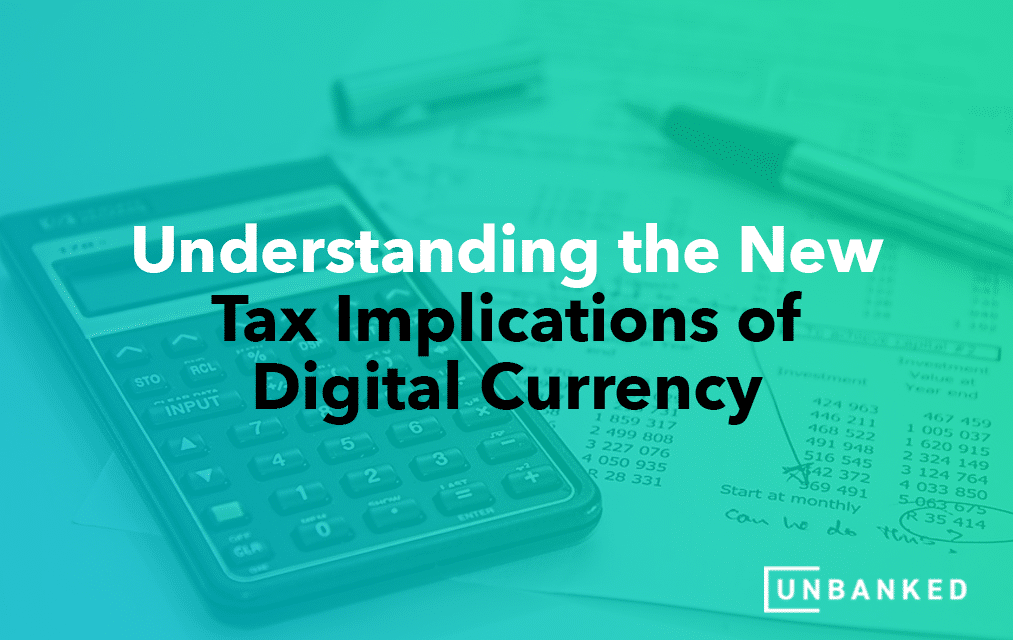With the increasing popularity of cryptocurrencies, the questions about their taxability have increased. The Internal Revenue Services (IRS) in 2014, for the first time, declared virtual currencies as “property” for US Federal tax purposes. This made cryptocurrencies taxable. Over the years, the IRS has taken note of the advances in cryptocurrencies and has improvised the tax provisions for them. However, the lack of clarity in certain provisions has led to several people evading taxes. This year the IRS is giving even more attention to taxing cryptocurrencies. The IRS Chief Charles Rettig stated that the expansion of the crypto market has led to an increase in the “tax gap” of the country. This is the reason that they are now ramping up tax dodgers with some new provisions. Understanding cryptocurrency tax laws and regulations not only makes you IRS-compliant but also helps you recognize tax-saving opportunities. This article will discuss the latest changes in the IRS guidance for crypto taxing and reporting.
Taxable Cryptocurrency Transactions
Cryptocurrencies are taxable “capital assets,” which means they will be taxed like stocks. Any gains from the increase in the value of crypto assets are taxable. However, they can be adjusted by reporting the losses. There are a lot of activities relating to cryptocurrencies that can be taxed. This includes:
- Exchanging cryptocurrency for other cryptocurrencies
- Sale of cryptocurrency for cash
- Using cryptocurrency to pay a merchant
In addition to this, you would also need to report the cryptocurrency you have earned as income which includes:
- Mining cryptocurrency
- Payments received in cryptocurrency
- Receipts of airdropped tokens
- Decentralized Finance Platforms that allow users to earn interest through activities like crypto lending, liquidity mining, staking and yield farming
If you donate your cryptocurrency to a charitable organization under section 501(c)(3), there is also a tax deduction. To qualify for a tax deduction, the receiving organization must verify that they can receive donations in digital currency. All cryptocurrency traders must report their crypto transactions, sale, capital gains, and losses on the US Individual Tax Return form 1040, which now includes a question related to sale, trade, exchange, or receipt of financial interests in any virtual currency. Initially, crypto tax evasion was much easier because the tax form 1040 did not mention virtual currencies until 2019. Additionally, you also have to file Sales and Dispositions of Capital Asset form 8949, where you can report the gains and losses in cryptocurrency transactions.
Long-term and Short-term Capital Gains
Long-term capital gains occur when you hold the cryptocurrency for over a year and then sell it. In this case, the long-term capital gains rate applies, which varies from 0 to 20% depending on your income tax rate on gross income. On the other hand, it is called a short-term capital gain when you sell a digital asset after holding it for a year or less. In this case, the gains from selling cryptocurrency are added to your income, and then they are taxed based on your ordinary income tax rate. This is usually higher than the long-term capital gains tax rate. In the case when your income bracket is higher, the IRS also imposes a 3.8% net investment income tax on your gross income level.
Additionally, some cryptocurrency exchanges send tax forms to people who use them. These forms include 1099-K (to report the total value transacted on a crypto exchange) and 1099-B (reporting capital assets). Although cryptocurrency exchanges are not required to send out these forms, they have been doing so, especially since 2020, to cut down crypto tax evasion.
Recent Advancements
The crypto trading volume increased by 75% this year alone. As a response, the IRS accelerated its efforts to subpoena centralized cryptocurrency exchanges to get information about non-compliant taxpayers. This spring, the IRS issued summons to crypto exchanges Kraken and Circle to find individuals who conducted transactions worth $20,000 in cryptocurrency between 2016 and 2020. In 2019 and 2020, letter 6173 was sent to individuals whose accounts contain virtual currency and who have not met the tax filing and reporting requirements related to digital assets. It gave them 30 days to respond to the IRS notice; otherwise, their tax account would be examined by the IRS, and they could be penalized. The IRS is also getting smarter in uncovering tax evaders. IRS officials are also being trained in new analytic tools and software that will help them identify non-compliant taxpayers. In May 2021, IRS partnered with TaxBit, a crypto tax firm, which will provide data analysis and crypto tax calculation support to IRS. Using a powerful tax automation software, TaxBit transforms the tedious process of crypto reporting for customers that makes them compliant with the crypto tax rules and regulations.
President Biden’s 2022 Budget Proposal will bring certain new changes to the crypto reporting requirements for digital currency companies. The crypto reporting requirements will be made more comprehensive, and it will become difficult for anyone to spend cryptocurrencies without reporting them. The new proposal requires all businesses to report digital currencies transactions above $10,000. Additionally, the crypto exchanges and custodians will be required to report data on customers whose gross worth of inflows and outflows is over $600 in a particular year. The new budget also proposes to increase the tax on long-term capital gains from 23.8% to 43.4%. This proposal will function retroactively for any transactions that take place from April 28, 2020. The Biden administration also announced that it would allocate $80 billion over the next decade to create a task force dedicated to virtual currency transaction reporting and compliance. In May 2021, the Department of Treasury announced that businesses, cryptocurrency exchanges, and individuals have to report cryptocurrency transactions above $10,000 in a tax year. These announcements signal that cryptocurrency will see a tighter regulatory framework accompanied by more IRS audits, reporting, and penalties. The government estimates that it could raise $700 billion over the next decade.
To learn more about cryptocurrency and tax regulations, read our blog.





